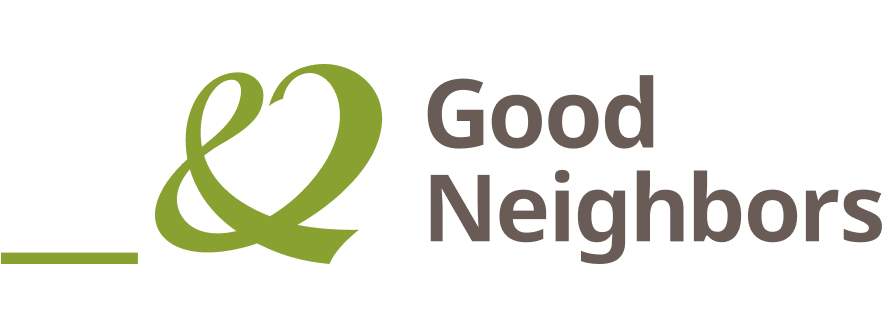Dhaka, Bangladesh – On July 5, Good Neighbors Bangladesh premiered its new documentary, “Together,” at the Liberation War Museum in Agargaon, Dhaka. The event aimed to highlight the impact of Good Neighbors’ child sponsorship program on children’s lives, community engagement, and sustainable development.
The premiere, attended by 180 distinguished guests from 40 organizations, including NGO representatives, government officials, and sponsored children, showcased touching stories of those impacted by Good Neighbors Bangladesh’s program. Directed by Mostofa Sarwar Farooki, the documentary reflects Good Neighbors Bangladesh’s commitment to sustainable development through community engagement and youth empowerment. It illustrates how the organization fosters sustainable development by empowering young people and utilizing an innovative support system.
During the opening remarks, Shariar Shojib, the documentary’s director, shared insights into the film’s creation, emphasizing the challenge of condensing transformative stories into a short format. Inviting viewers to witness the real transformations depicted in the film, he noted, “If you see with your own eyes how these people are coming from absolute zero to a certain place, then you’ll believe it.”
Following the screening, guests praised the documentary’s impact. Tony Michael Gomes, Strategic Partnership, Advocacy, and Communications Director at Care Bangladesh, highlighted how the film effectively uses a fictional narrative to make real-life stories more accessible, thereby clarifying Good Neighbors Bangladesh’s mission. Farzana Brownia, Founder and CEO of Shornokishoree Nirvik Network Foundation, noted, “The documentary captures only a tiny part of what Good Neighbors Bangladesh has accomplished. The organization has been a hope for these sponsored children, instilling confidence in them.”
Anwar Hossain, Joint Secretary, NGO Affairs Bureau, acknowledged the critical role of nonprofit organizations in ensuring basic human rights, especially in rural areas where government’s reach is limited. He praised Good Neighbors Bangladesh’s ongoing efforts to reduce poverty, stating, “Among the 2,600 registered NGOs in the bureau, Good Neighbors Bangladesh has been one of the most significant.”
A particularly impactful moment was when Siddikur Rahman, a sponsored child, shared his personal experience. Highlighting that the documentary depicts real stores and experiences of his, he emphasized how Good Neighbors Bangladesh has shaped his life and urged the audience to support underprivileged children, giving them the same opportunities for success.
In the closing speech at the premiere, M. Mainuddin Mainul, Country Representative of Good Neighbors Bangladesh, outlined the documentary’s purpose and scope. He highlighted the organization’s longstanding efforts in remote areas of Bangladesh, focusing on children’s education, health, and income generation. Acknowledging the challenge of encapsulating 27 years of history in a 27-minute film, he allowed for future developments by stating, “The documentary is our contribution to innovating communication for development organizations. I hope it opens a platform for further discussion.”
Founded in 1996, Good Neighbors Bangladesh has worked to improve the lives of children and youth for over 27 years. The organization remains committed to helping underprivileged communities come out of poverty.
For more information, please contact:
Al Imran Monju (monju@goodneighbors.org)
Communication Team, Good Neighbors Bangladesh
You will be redirected to Good Neighbors Bangladesh’ donation page.
Good Neighbors began its work in Bangladesh in August 1996 with the aim of improving the lives of children, women, and youths, and making good change for the world.
Initially, our focus was on meeting the needs of disadvantaged children by establishing daycare centers, schools, and hostels. These programs served 154 children from poor families in Moulvibazar and ensured their safety, security, and health. In the subsequent year, we launched the Mother and Baby Care Center in Dhaka for pre-primary education and an agriculture project in Sirajganj, introducing the self-help group model for women’s savings. Later, we expanded our focus to include vulnerable children through our sponsorship program, providing services in education, health, and income generation as part of our long-term community development initiatives.
Currently, Good Neighbors Bangladesh is active in 13 districts with 17 community development projects and 5 projects addressing specific needs. We also continue operating six schools directly. Each year, we mobilize approximately 60,000 children, 29,000 women, 2,000 volunteers, and 300 Community Health Workers (CHW).
We have established long-term partnerships with organizations such as the UN World Food Programme (WFP), UNICEF, the Ministry of Foreign Affairs of Japan, and the Embassy of Japan in Bangladesh, focusing on disaster risk reduction and climate change projects. We have also collaborated with Australian Aid and the Korea International Cooperation Agency (KOICA).
Good Neighbors is a global NGO dedicated to improving the lives of children and communities in over 50 countries.
Good Neighbors has held a General Consultative Status to the United Nations Economic and Social Council (ECOSOC) since 1996.
